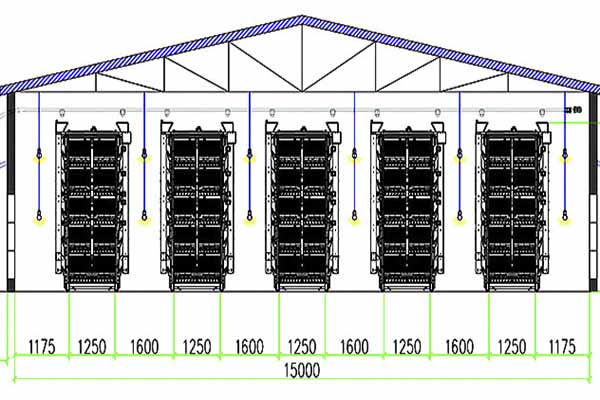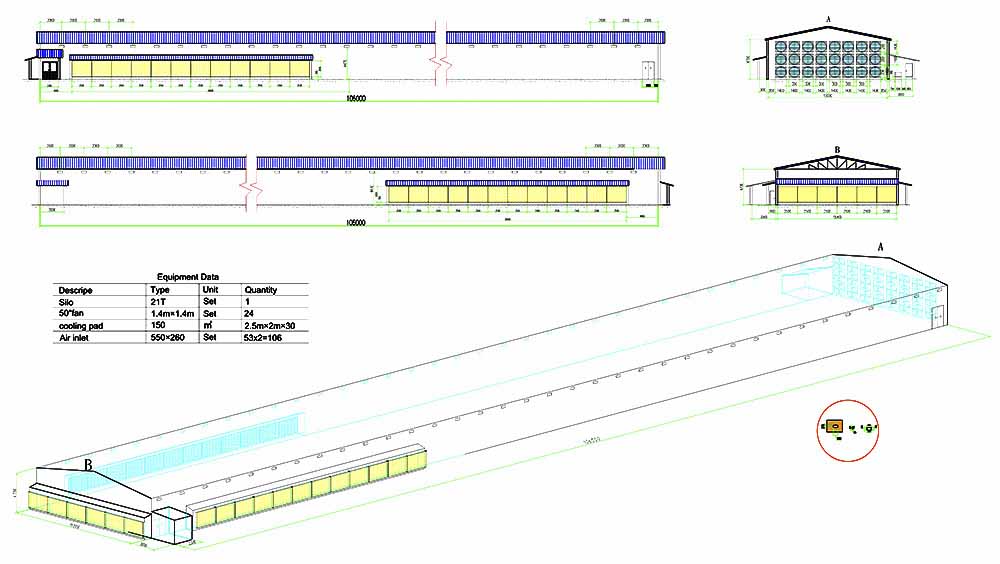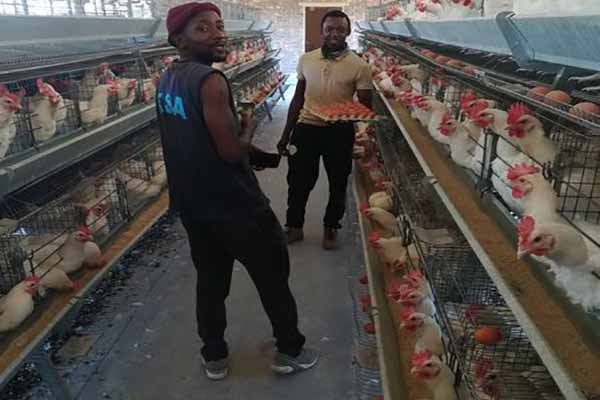Nigeria Large Scale Poultry Production: Strategies, Equipment, and Best Practices
Time : 2025-06-24
In recent years, Nigeria has been witnessing a significant rise in the demand for poultry products. With the growing population and urbanization, there is a need for large-scale poultry production to meet the demand. This article explores various strategies, essential equipment, and best practices for large-scale poultry production in Nigeria.
Understanding the Nigeria Poultry Industry
The poultry industry in Nigeria is primarily dominated by small-scale producers, with only a few large-scale integrated operations. The industry contributes significantly to the national economy by providing employment opportunities, income generation, and food security. The demand for poultry products has been increasing, and this trend is expected to continue in the coming years.
Market Analysis and Demand Forecasting
Accurate market analysis and demand forecasting are crucial for the success of large-scale poultry production in Nigeria. This involves collecting data on consumer preferences, market trends, and potential risks. By analyzing this information, producers can adjust their production strategies accordingly to meet the demands of the market.
Strategies for Large-Scale Poultry Production in Nigeria
1. Integrated Farming Approach
An integrated farming approach combines different aspects of poultry production, including broiler farming, layer farming, and backyard poultry. This approach helps optimize resources, reduce costs, and improve efficiency. It is an effective strategy for large-scale poultry production in Nigeria, as it allows producers to cater to various market segments.

2. Vertical Farming
Vertical farming is a cutting-edge approach that utilizes limited space for poultry production. It involves stacking multiple layers of poultry in a compact space. This technique is ideal for large-scale poultry production in densely populated areas like urban Nigeria, where land availability is limited.
3. Contract Farming
Contract farming is a mutually beneficial relationship between a poultry producer and a processor. The producer is responsible for rearing the poultry, while the processor ensures the marketing and sales of the final products. This approach minimizes risks for both parties and ensures a stable market for poultry producers.
Essential Equipment for Large-Scale Poultry Production
1. Feed Processing Equipment
High-quality feed is a critical factor in large-scale poultry production. Essential equipment for feed processing includes grain millers, mixers, and feed bins. These machines help ensure the production of nutritious feed, which contributes to healthy poultry growth and development.

2. Environmental Control Systems
Environmental control systems are essential in maintaining optimal conditions for poultry production. These systems include fans, heaters, coolers, and lighting. They help regulate temperature, humidity, and ventilation, ensuring that the poultry remain comfortable and healthy.
3. Hatchery Equipment
Hatchery equipment is vital for breeding and incubating healthy chicks. Key components include incubators, setters, hatchers, and egg collection equipment. These machines ensure efficient and reliable production of day-old chicks, which are crucial for the success of a poultry farm.
4. Poultry House Construction
The design and construction of poultry houses play a vital role in the success of large-scale poultry production. Factors to consider include insulation, roofing materials, and flooring systems. Poultry houses should be well-ventilated, insulated, and designed to minimize disease risks.
Best Practices for Large-Scale Poultry Production in Nigeria
1. Biosecurity Measures
Implementing biosecurity measures is essential to prevent the introduction and spread of diseases on poultry farms. This includes the use of barriers, sanitation protocols, and health monitoring programs. Ensuring that the poultry are free from diseases contributes to higher productivity and profit margins.
2. Regular Training and Skill Development
The success of a large-scale poultry production depends on the knowledge and skills of the workers. Regular training and skill development programs can improve the productivity and efficiency of the workforce.
3. Adoption of Advanced Technology
Adopting advanced technology in poultry production can lead to improved productivity and profitability. This includes the use of automated feeding systems, advanced breeding techniques, and precision farming tools.
4. Sustainable Practices
The poultry industry in Nigeria can adopt sustainable practices to minimize environmental impacts. This includes proper waste management, efficient use of water resources, and renewable energy sources.
Conclusion
Nigeria has immense potential for large-scale poultry production to meet the increasing de mand for poultry products. By adopting effective strategies, investing in essential equipment, and implementing best practices, poultry producers can enhance productivity, profitability, and sustainability in the Nigerian poultry industry.
mand for poultry products. By adopting effective strategies, investing in essential equipment, and implementing best practices, poultry producers can enhance productivity, profitability, and sustainability in the Nigerian poultry industry.











